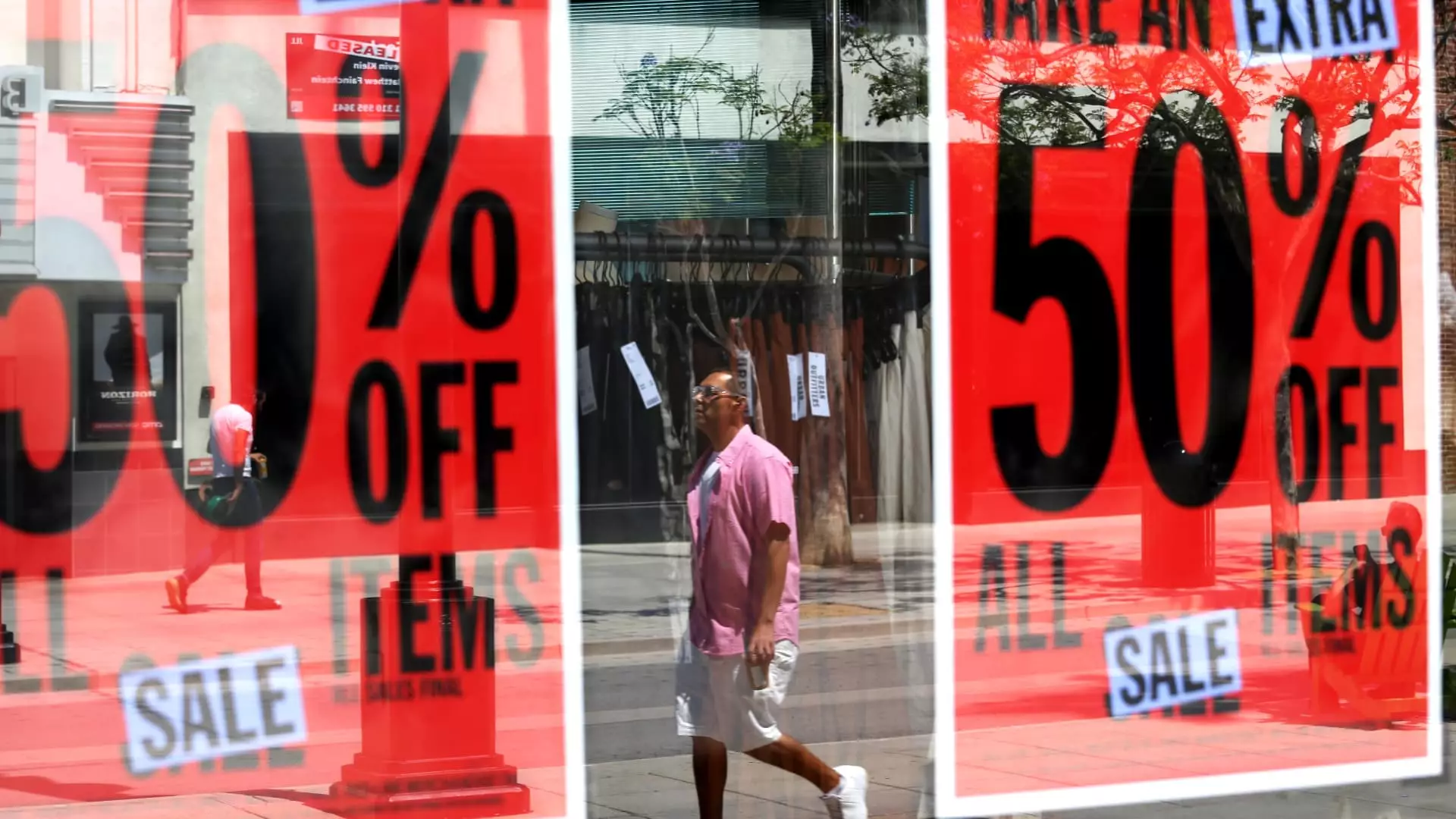As the specter of a protracted trade war looms large, retailers across the United States are ensnared in a web of uncertainty. President Donald Trump’s aggressive tariff policies have forced these businesses to adopt a peculiar marketing strategy—warning consumers about impending price hikes while simultaneously urging them to make purchases before the predicted financial storm strikes. What was once a stable landscape for companies, big and small, has turned into chaotic waters where waves of fear and ignorance threaten to capsize the unprepared.
The retail industry is no longer just reacting to trends; it is fighting a battle against the unknown. Companies like Beis, Bare Necessities, Fashion Nova, and Knix have all invoked tariffs in their advertising communication, steering their narratives toward urgency. Rather than simply marketing products, they are creating climate-based urgency; yet, this orientation may expose deeper issues surrounding their foundational business strategies. Claiming impending doom could feel like a short-term fix to enhance sales but reveals a floundering industry grappling with insecurity.
Marketing through Panic
By employing an almost alarmist tone, retailers are grappling with what analysts predict as a drop in consumer spending. Many are considering “pre-tariff sales”—is this really a promotional strategy or a desperate ploy to stave off impending losses? Bare Necessities boldly announced a 30% discount, characterizing it as a “stock up before tariffs hit!” This audacity challenges traditional marketing paradigms. Furthermore, it highlights an unsettling trend in the retail landscape: businesses are now prioritizing immediate cash flow over long-term viability.
Sonia Lapinsky of AlixPartners asserts that this rush to shore up finances may be wise. Acknowledging the fear of consumer behavior taking a nosedive, she notes that some retailers are aware they may only retain 80% of current revenue. This reveals an alarming truth about the present state of consumer confidence and retail assurance; it indicates significant cracks in how brands manage expectations and respond to economic cues. Moreover, the implicit message externalized in these promotions showcases a lack of preparedness that feels disquieting.
The Damage of Tariffs on Small Businesses
The instability has greater repercussions for smaller businesses that lack the global supply chain agility of larger retailers like Walmart and Target. Small companies are faced with limited options and fewer resources to buffer themselves from tariff-induced volatility. As Lauren Beitelspacher posits, “Tariffs are going to impact every business, but [smaller companies] more because they have fewer global options.” The plight of these small retailers highlights a fundamental inequality within the market.
Brands transitioning to pre-tariff promotions may experience fleeting sales spikes, but they could also be laying the groundwork for future instability. The genuine pressure to maximize the current consumer demand can lead retailers into a survivalist mindset, compromising product quality and brand integrity. The emotional rollercoaster that is tariff policy places undue strain on smaller enterprises, and while some may show resilience, many others risk being swept away.
Humor as a Coping Mechanism
Interestingly, as seen with brands like Beis, humor has emerged as a coping strategy to navigate an otherwise grim narrative. “Let’s skip the corporate-speak: This tariff situation is a complete dumpster fire,” they wrote, acknowledging the absurdity of their own predicament. The appeal to humor may not only help to disarm potential customer anxiety, but it also serves an opportunistic function; it frames their current challenges in a palatable manner.
Importantly, humor can serve as a neutralizer in a politically charged scenario. Barbara Kahn from The Wharton School emphasizes that brands are attempting to sidestep the partisanship often associated with tariffs. They aim to ensure their messaging resonates across ideological boundaries, though this tactic feels more like evasion than integrity. Brands should consider whether their identities are being polished to the point where authenticity becomes compromised.
The Retail Landscape’s Unlikely Future
The long-term implications of these strategies remain murky. While immediate sales boosts can help curtail losses, the overarching anxiety about tariffs casts a long shadow. There exists a palpable fear within the retail sector; will the trade war genuinely escalate to a point where consumer spending trends worsen, or will pent-up demand hold steadfast? Consumers remain cognizant of potential price hikes, but they are also searching for stability amidst the chaos, a commodity currently in short supply.
As the eventual outcome of the trade war remains uncertain, brands must navigate uncharted territory with agility and insight. The current approach of leveraging panic and humor is unsustainable; consumers ultimately seek genuine value and consistent engagement. Retailers must reconsider their strategies and prioritize stable fundamentals over short-lived marketing gimmicks if they hope to retain consumer trust in an increasingly volatile economic landscape.

